We were lucky to catch up with TERRI FROHMAN recently and have shared our conversation below.
Hi TERRI, thanks for joining us today. Let’s start with what makes profitability in your industry a challenge – what would you say is the biggest challenge?
When artists introduce themselves to people they meet the most common reaction/response is usually…”that’s incredible!! Being an artist must be so cool!” They forget we actually have to run a business, usually without the skillset to do so, often without the financial safety and usually alone.
The outside world has a picture of what it means to be an artist in two extremes, “that’s amazing!” or “that’s not very practical and sounds difficult, how do you support yourself?” This inevitably creates a lack of trust for the artist because those thoughts have been projected onto us for so long.
A part of breaking that starving artist cycle is tuning out the noise and being extremely proactive, curious, eager to learn the business/administration aspects and do it with unwavering grit like any business startup.
Approximately 1.57 billion people are self-employed around the globe. That figure accounts for nearly half (46.4%) of the global workforce and the pandemic gave many creatives the chance to jump at their dreams and start their businesses.
Profitability in the art industry can be quite a gamble (moreso when you are starting out) which deters many from following their passion. Since 2019 the economy has been a roller coaster which dictates how people are spending their money in 2024 and where buying art fits into all of that.
Do they understand buying art as an investment? What personal expenses are they struggling with or job layoffs?
Artists do a great job capitalizing holidays and special occasions, but to make sales year round takes consistency and innovation and can feel like driving stick for the first time no matter if you have representation, shows or online shops.
It’s super important for society to also understand buying art isn’t just a seasonal purchase or just a gift.
I buy art for myself when I feel called to do so and I remind my clients that, profitability doesn’t only exist during a holiday but it’s a chance to invite new buyers into your space.
I’ve had clients who have the “seller” personality, it comes easily, they are shameless when it comes to hopping on social media and talking about their artwork and other clients that take more time to open up and find that person inside of them but the challenge comes when your sales rely on the Artist making it their job to show up,
Inevitably, this can be a very vulnerable, slow process. We can talk about attracting the right art buyers all day, but we aren’t magicians or psychics – like any emerging business owner, it takes time and that does pose a challenge when all you want to do is profit from your passion without sacrificing the financial stability you could have working a traditional job.
My unsolicited advice?
– Ease out of your current job slowly, you don’t need to quite abruptly and you shouldn’t.
– You will NOT be broke the moment you leave your job. That’s a mindset and not based in reality. (Unless of course you were living paycheck to paycheck beforehand).
– You are transitioning from one career to another.
– Create set boundaries and a timeline for your exit plan and stick to it.
– Hire a consultant who can help expedite this process. With proper support and expert advice the learning curve doesn’t impede on your arts business journey.
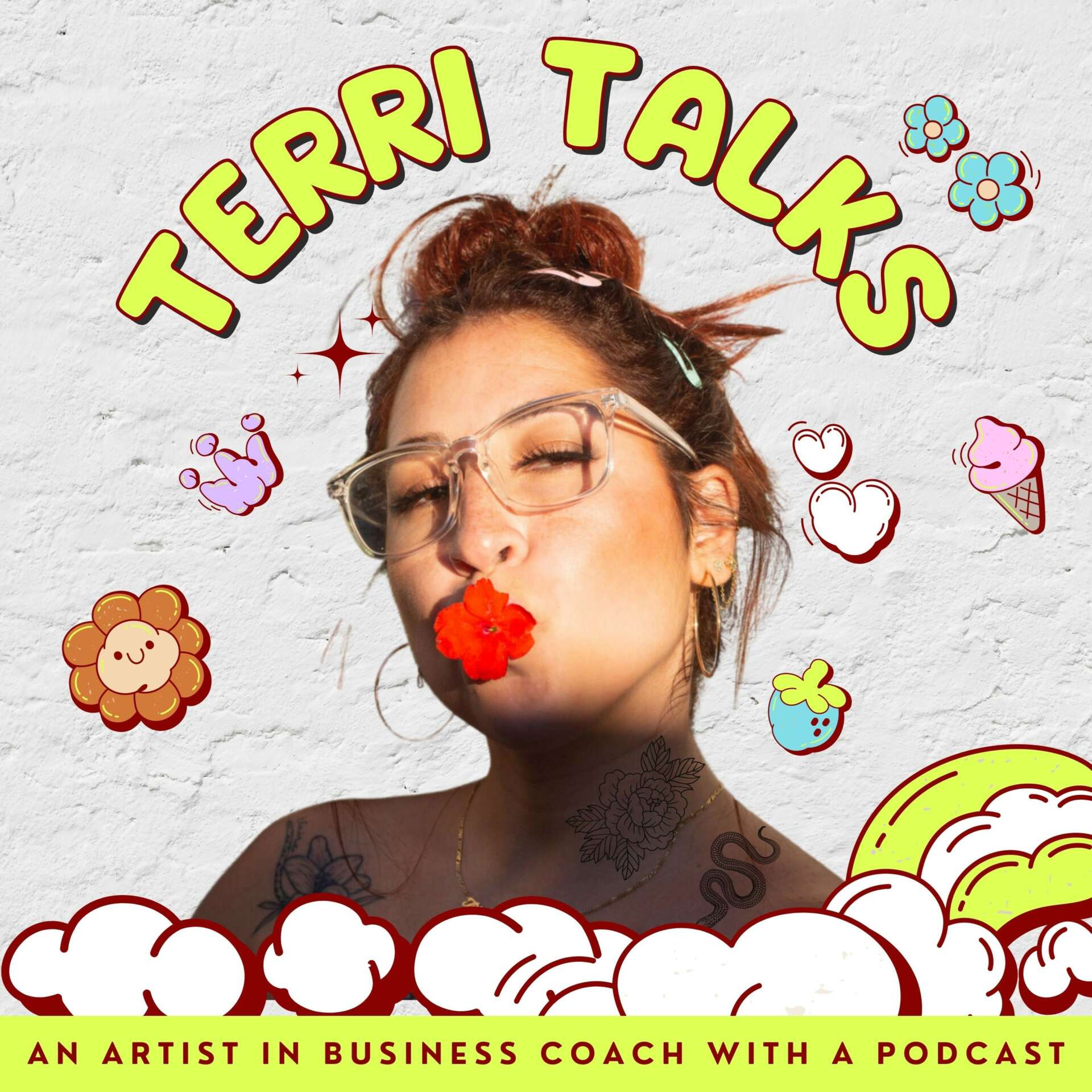
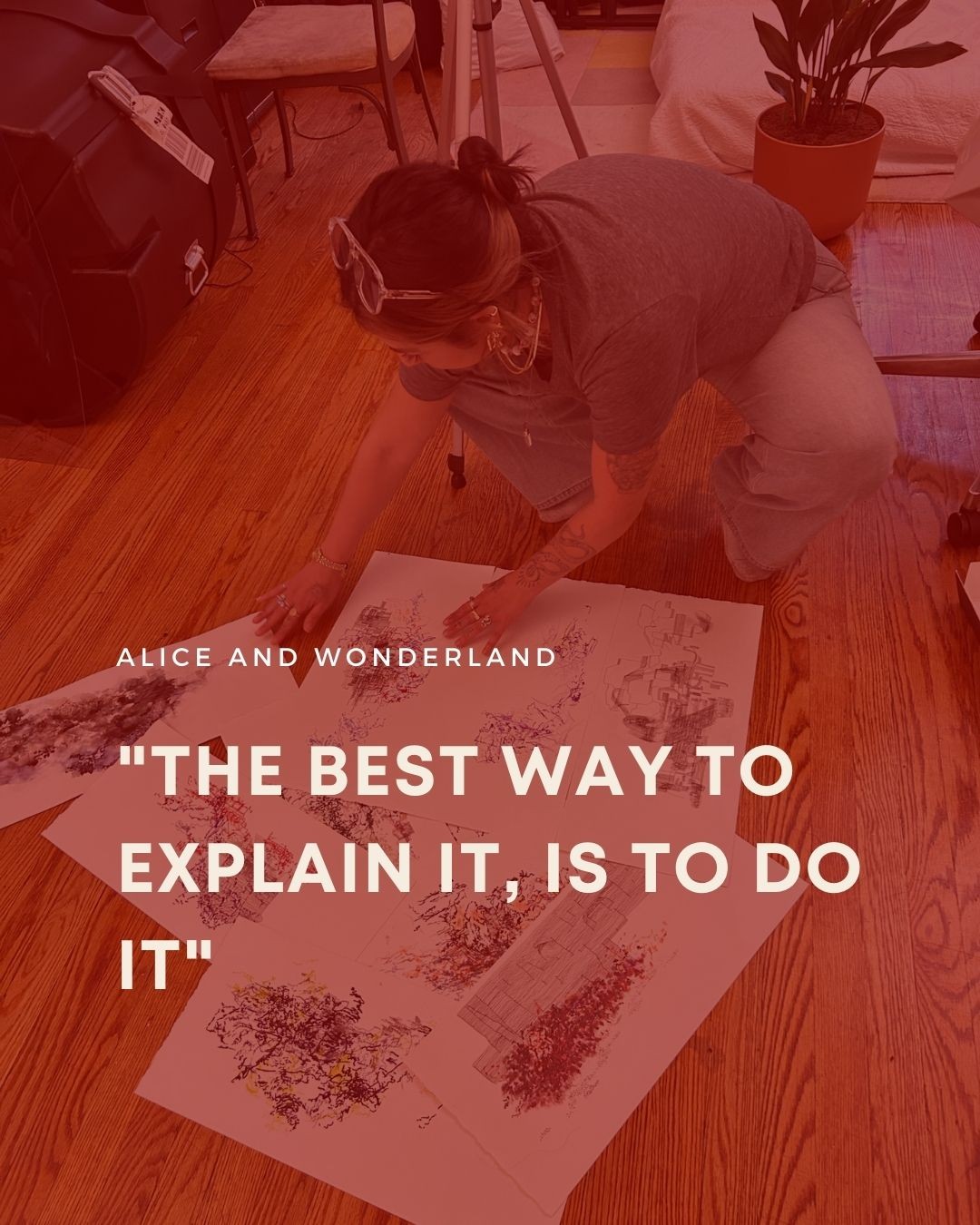
Awesome – so before we get into the rest of our questions, can you briefly introduce yourself to our readers.
I am an Artist in Business Coach, Partner in Crime, Ride of Die Consultant. You choose… My mission is to demystify the process of becoming a professional artist and get rid of the starving artist mindset so that artists can flourish and build profitable businesses the way they were meant to. Through Private Coaching Programs, Workshops and Monthly Office Hours, I provide support in a variety of ways to help artists curate an arts business they can truly rely on.
A Native New Yorker, Mixed Media Artist, MFA Graduate from NYU and Brooklyn Resident, I was an Art Educator and Teacher Mentor for over a decade. After being a devoted Educator I decided it was time to stretch into the art world and in doing so needed support myself. How do I sell my screen prints? Leather goods?
I gathered a community of women makers in Brooklyn and started Handmade in Brooklyn Collective in 2015. I relied on my mentoring and leadership skills to cultivate an amazing community of women who supported each other in the journey of being small business owners.
Eventually, the Pandemic hit us like a ton of bricks, however, finally giving creatives the opportunity to take a leap of faith towards turning their passions and ideas into a profession. At this point, supporting artists was more essential than ever and I began focusing on private coaching.
My intention to guide artists through the nuances of selling their art, networking in the online space, opening up website shops, promoting on their own through non-traditional avenues became a vital role because Galleries were now shut down and in person engagement wasn’t possible.
My approach isn’t like most Art Coaches out there. I don’t tell my clients “the secret to…” or “do it this way…” they deserve options, professional development that allows them to exercise decision making, leadership and ceo mindset! I love watching my clients feel empowered by our work, problem solving and co-creating together. It’s an intimate relationship that takes commitment and hard work, but the reward is so special.
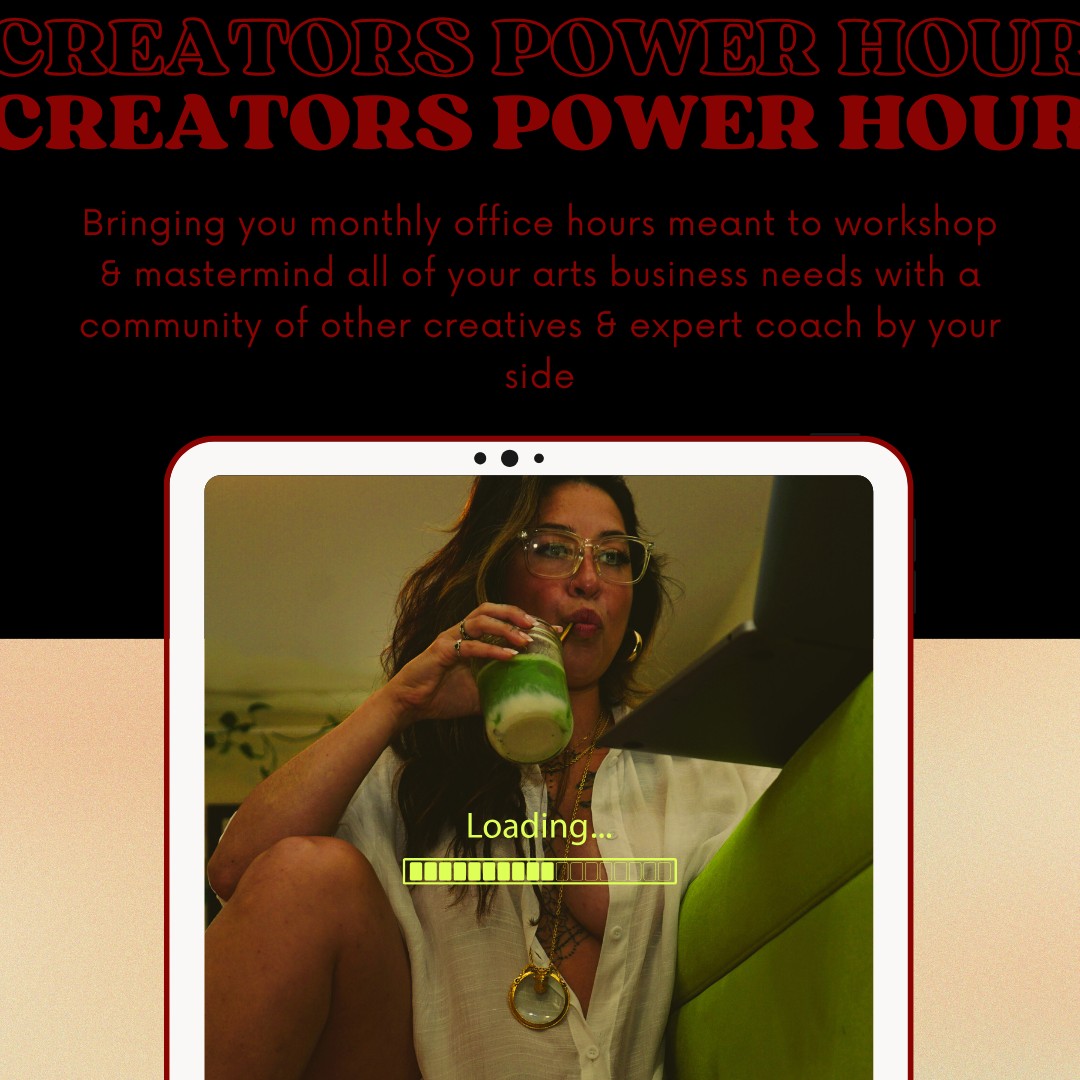
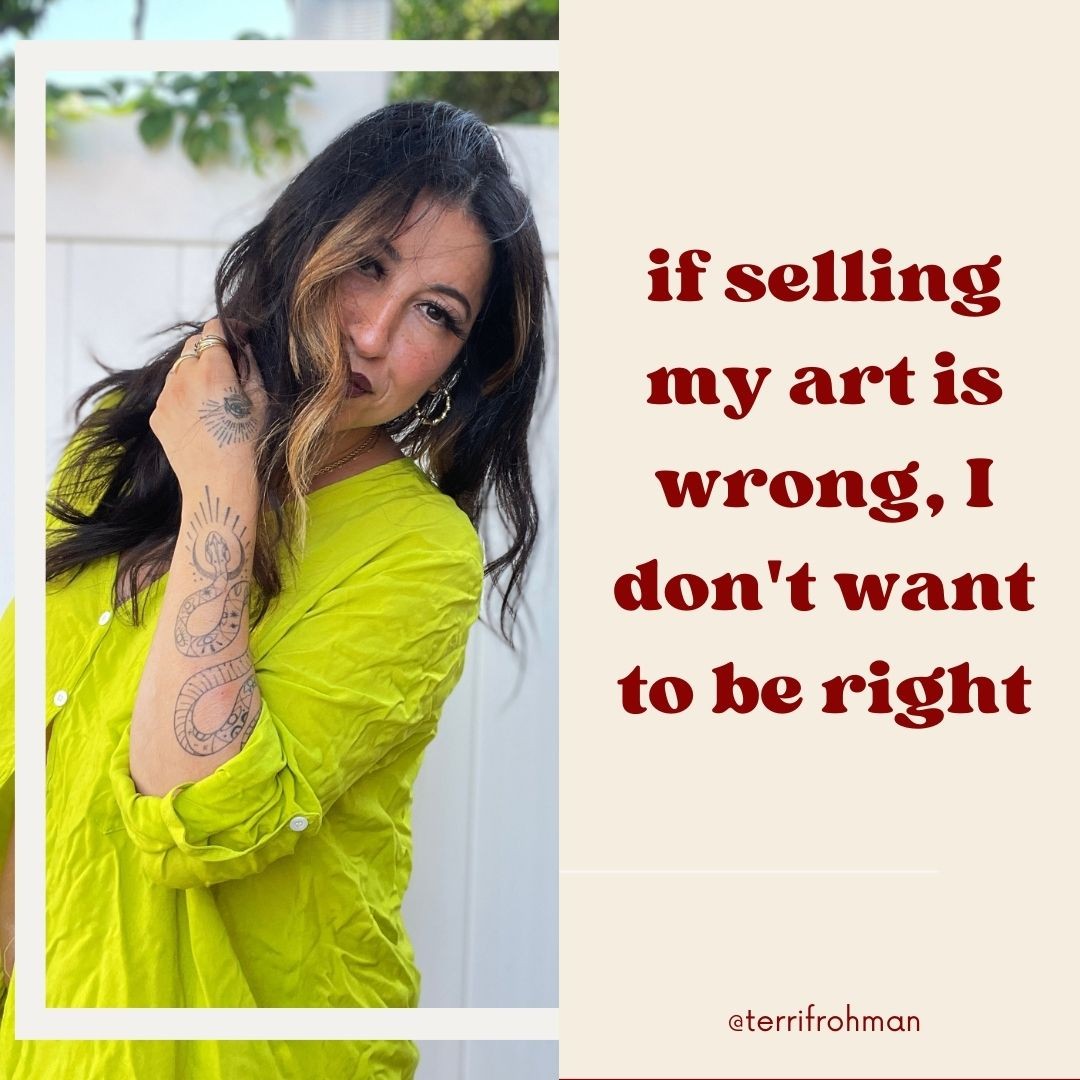
Let’s talk about resilience next – do you have a story you can share with us?
After being fired from my job as an Art Educator for rocking the boat a bit too much poltiically, I wallowed on the couch for a bit (as most people should) wondering what skills I still had left that I could utilize to start a new life. I remember talking to my dad and saying, being an Art Teacher was all I wanted to do since I was in High School and now what am I supposed to do?
As uncommon as this is, my Dad and Grandfather always wanted me to pursue an art career and I honestly, never truly wanted to be an artist. Heck, I barely signed my work.
But the draw to becoming an Art Teacher was the power in collaboration, a true force to be reckoned with and working with High School students was my outlet as an artist. We made art together. I even made lesson plans based on my own art and then led them through the process so they could create their own visual stories.
Fast forward I got off the couch, took a refresher course on screen printing in my neighborhood and signed up for a full-time membership the next day and eventually got myself a private studio. My new full time job became showing up at the studio, researching residencies and opportunities for events to sell my products and navigating unchartered territory.
How did I survive financially? We all want to know…
I have always been frugal with my money and made great money as an Educator after 13 years so I knew I could survive for a little while and jumped back into babysitting as a placeholder. I also started making stuff I could sell, I never invested a lot and played everything very New York savvy.


How did you put together the initial capital you needed to start your business?
Every year after I incorporated Handmade in Brooklyn and started charging an annual membership fee, I opened up a business account (as per my lawyer Grandfather’s advisement) and added $1500 to it, which at the time was the minimum. I knew I had to always have that baseline.
I then prioritized what I needed to invest in second, that would not only elevate my business but keep it running smoothly. As membership payments came through I made a promise that each year I would make a game changing decision with the profits. Profits were small because I wasn’t charging a lot…it was a passion project that not only did I need myself but I knew other people needed us who were in the same boat.
When I branched out into coaching those members, I was able to afford a larger investment annually. A way more professional accountant, a client platform, website fees, ads, guest speakers, promotional items for onboarding members, etc.
You do NOT need a lot of capital to get started, you need to be smart!
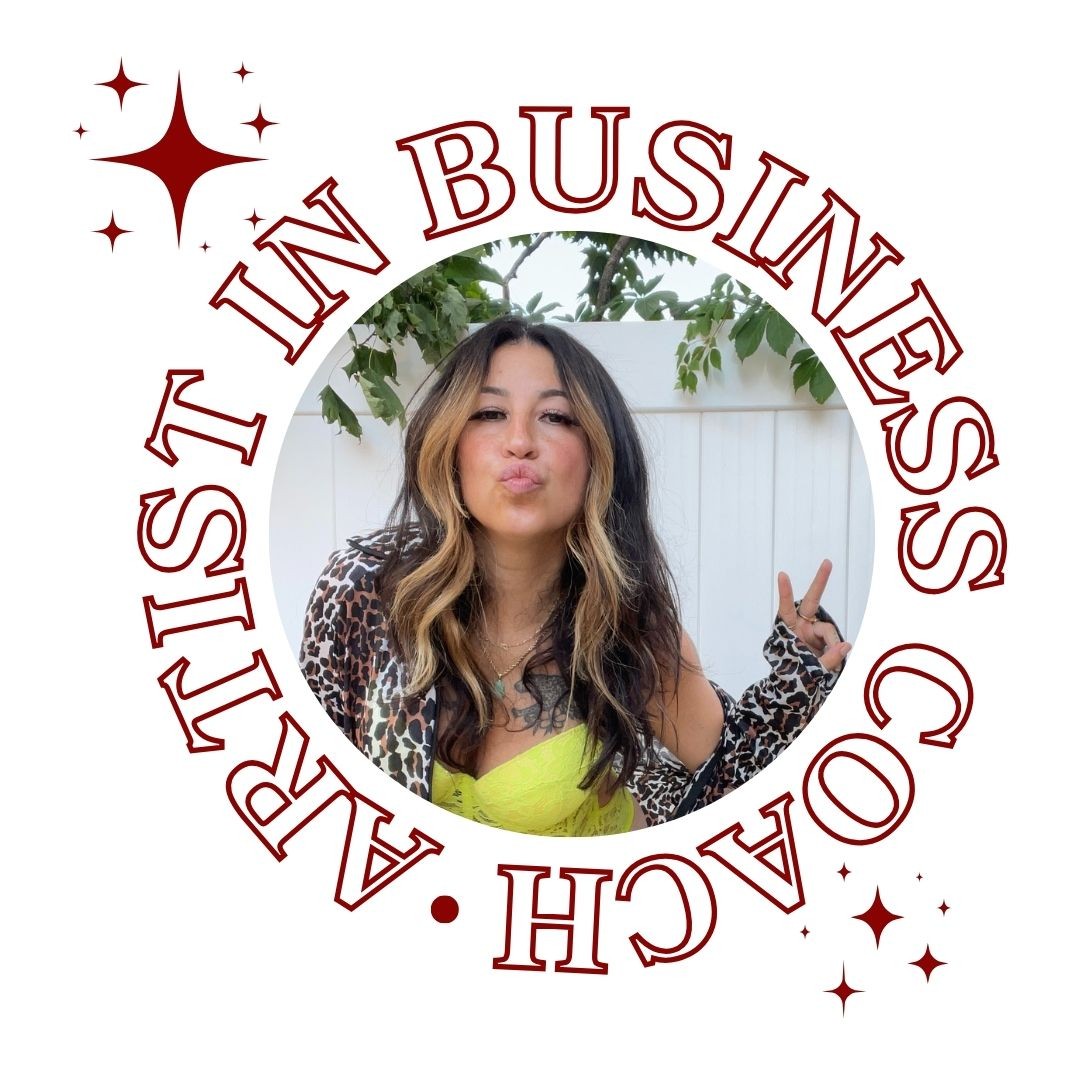
Contact Info:
- Website: www.terrifrohman.com
- Instagram: @terrifrohman
- Facebook: https://www.facebook.com/terrifrohman
- Linkedin: https://www.linkedin.com/in/terrifrohman/
- Youtube: https://www.youtube.com/playlist?list=PL7uZy9sqAAb-_16gm8LQW9de9olD3Hjq_
- Other: Terri Talks Podcast: https://open.spotify.com/show/4jNvnlfxlkNWM3ZxO7gzfg?si=d5691a573ead4d1d


